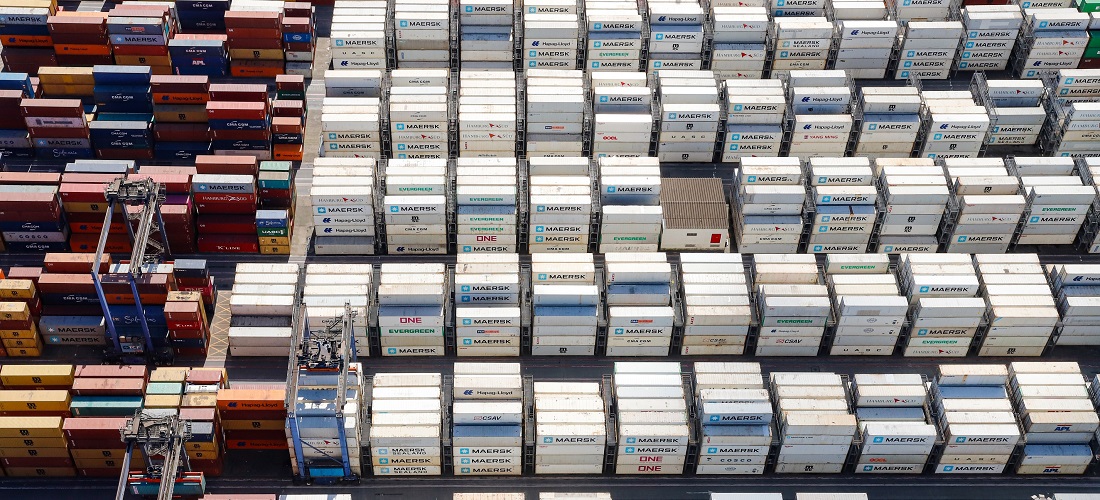
Brazilian Supreme Court studies a possible THC2 comeback
Aug, 04, 2022 Posted by Gabriel MalheirosWeek 202231
The Brazilian Association of Container Terminals (Abratec) asked the Brazilian Federal Supreme Court (STF) to rule in favor of allowing the collecting of the THC2 charge, recently suspended on July 28 by the National Waterway Transportation Agency as per orientation of the Federal Court of Accounts (TCU).
According to Abratec, the charge is not illegal, and its suspension can impact investments, in addition to provoking a loss of more than BRL 1 billion between 2023 and 2025.
THC2 is charged in dry ports, which are bonded customs facilities. When an operator chooses a dry dock, the port terminals collect this fee due to the necessity of removing the containers from the storage piles, allowing for transit, among other things.
In addition to Abratec’s ply to the Supreme Court, Antaq, through its press office, confirmed it filed a request for re-examination to TCU to attempt reforming the decision taken on the 28th. The Court of Accounts reported that “the responsible personnel will evaluate the appeal. It will then be forwarded to the rapporteur, who will later take the process for a final decision by the TCU Plenary.” There is no time frame to expect this entire process to occur.
The agency maintains that it followed all the legal procedures for regulating the matter, so much so that it had already evaluated the regulatory impact and opened a public consultation to curb possible abuses in the collection of the THC2 charge.
According to the TCU, Antaq was ordered to cancel all provisions of Resolution 72/2022, which concern the possibility of charging the SSE “in the face of deviation of purpose.”
Technical analysis
According to the president of Abratec, Caio Morel, the suspension is not in accordance with the most recent happenings. “t is enough to observe the normative proposals of Antaq or the latest technical analysis of CADE (Administrative Council for Economic Defense). This decision by TCU was a turning point in an issue that has lasted more than 20 years and was under technical analysis. Based on it, THC2 must be charged.”
For Morel, Cade’s assessments prove the legality of the charge. “They collected information from all container terminals and dry ports. In other words: the two sides of the dispute. And they concluded that there was no reason to prohibit charging THC2. When you control the activity, you inhibit investments anywhere on the planet. We lack the capital to invest, and we are, with these controversies, creating a hostile environment. The impact is huge.”
Lawyer José Carlos Higa de Freitas from the Ruy de Mello Miller law firm believes that the TTCU’s decision should be interpreted carefully since it indicates direct intervention in a topic beyond Antaq’s purview. “In fact, if Resolution 72/2022 was not able to mitigate the dispute over the collection of the SSE, it does not justify this intervention.”
According to Freitas, an increase in litigation on this subject is expected, which is unsuitable for the industry. “Although there is no clear indication at this time, the key entities concerned (Antaq, Cade, and TCU) must seek a rapid and consensual solution owing to the significant financial implications of this problem.”
Source: A Tribuna
To read the full original article, please go to: https://www.atribuna.com.br/noticias/portomar/suspensao-de-taxa-portuaria-e-questionada-no-supremo-tribunal-federal
-
Ports and Terminals
Nov, 14, 2019
0
Santos Brasil announced a net profit of R$7.7m in 3Q19
-
Dec, 07, 2021
0
Canadian potash exporters secure supply for Brazil
-
OTI Rankings
Dec, 17, 2018
0
DataLiner OTI Rankings (NVO Rankings) | January to October 2018 Brazil
-
Other Logistics
Jan, 14, 2025
0
CMA CGM Expands Sustainable Intermodal Rail Solutions in Brazil

